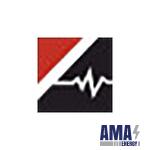Acoustic Emission Control
Acoustic emission monitoring services for technical devices used at hazardous production facilities during major repairs and during operation.
Areas of application of the AE control method
- Vessels
- Pipelines
- Reactors
- Tanks
- Columns
- Heat exchangers
Advantages of the Acoustic Emission Method
Method Integrity
The acoustic emission method allows you to control the object in full, including hard-to-reach and inaccessible areas (underground pipelines, objects in isolation, tanks, column and capacitive equipment) using a small number of sensors.
Method distance
The ability to control when the operator is significantly removed from the object under study. This feature of the method allows you to effectively use it to control (monitor) critical large-sized structures, extended or especially dangerous objects without decommissioning and harm to personnel
Control continuity
Using the AE control method, continuous monitoring of the technical condition of the facility during operation is possible. This allows you to move from periodic technical surveys to the operation of the facility according to the actual technical condition.
Detection and registration of developing defects
The AE control method ensures the detection and registration of only developing defects and classifies them according to the degree of danger. Damage to the facility is detected long before the onset of the limit state, which allows you to plan repair measures and apply preventive measures to prevent emergency situations.
It does not require careful preparation of the surface of the test object.
Unlike scanning non-destructive testing methods, the AE method does not require careful preparation of the surface of the test object. Therefore, the implementation of the control and its results do not depend on the state of the surface and the quality of its processing. The insulation coating (if any) is removed only at the places where the sensors are installed.
High sensitivity
The high sensitivity of the method allows you to effectively apply it to control products from various materials.
Limitations of the Acoustic Emission Method
Low sensitivity to defect geometry
The AE method determines the location of the defective areas, after which other NC methods are used to more accurately determine the nature of the defects.
Load requirement
When conducting acoustic emission control, the test object must be subjected to work or test loads
Staff qualifications
The need for highly qualified personnel performing acoustic emission control

